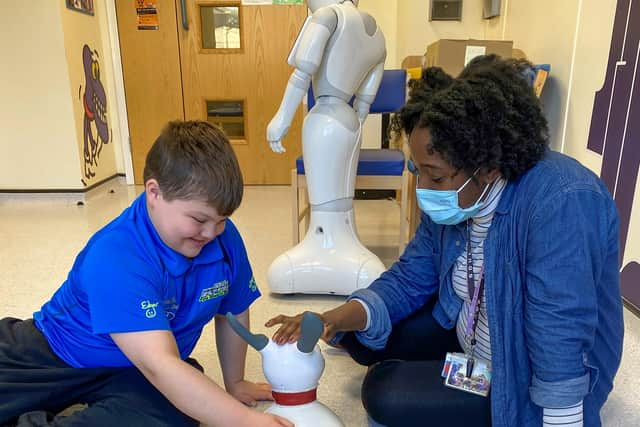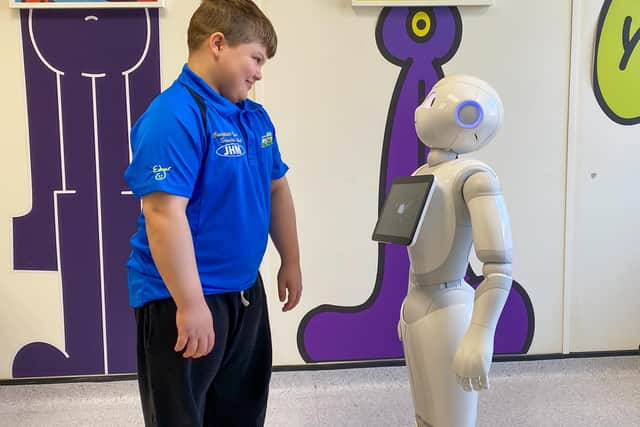Sheffield Children's Hospital brings in robots in effort to reduce anxiety for young patients
and live on Freeview channel 276
The two robots – Pepper and MiRo – are being used at the hospital as part of a pilot study to examine their benefits.
PhD student Brenda Littler, from the University of Sheffield, has introduced the robots as she explores the types of interactions between patients aged five to twelve and robots, as well as the emotional impact that meeting the robots has on young people.
Advertisement
Hide AdAdvertisement
Hide AdPrevious studies have shown that social robots that interact with humans through movement and speech can help reduce the feelings of anxiety, distress and worry in children who visit hospital.


Ten-year-old Brandon from Barnsley must visit Sheffield Children’s Hospital every two weeks for treatment of his eczema – with which he has suffered with since he was two-years-old.
His appointments can be very long, often lasting four to five hours, but meeting the robots has made his trips to hospital a lot more interesting. He met Pepper, a tall humanoid robot, and MiRo, an animal-like robot.
Of the robots, Brandon said: “Pepper is my favourite because it can play the saxophone and is really funny. I also liked MiRo’s squishy ears.”


Advertisement
Hide AdAdvertisement
Hide AdMiRo is able to make animal-like sounds with motor and sensory abilities, whilst Pepper is programmed to talk, move and even dance.
"Taking part in research has been really interesting,” said Brandon’s mum, Leanne.
"Brandon absolutely loved meeting the robots at the appointments and even asked if he could take Pepper home with us. Pepper told Brandon a story, danced and followed him around which he thought was great.”
Three other areas of the hospital have been visited by the social robots – the Theatre Admissions Unit, Haematology and Oncology Unit, and Ward 3.
Advertisement
Hide AdAdvertisement
Hide AdBrenda, from the University of Sheffield’s School of Health and Related Research, said: “We’re doing this study because we want to find a way to help reduce the anxiety and distress levels in children visiting hospital and help take their mind off everything that is going on.
“Some children who come into hospital might be with us for a number of hours, so being able to offer them something fun and new to entertain them and help their wellbeing is great. I am hoping the results of the study will help us understand how social robots can fit in a hospital and work alongside staff, and how we can go about introducing them in different settings.
“Conducting research at Sheffield Children’s has been an amazing experience. Everyone has been so helpful and supportive. I have met amazing health professionals who really care about their patients and are there to make a difference in these children’s lives.”
Professor Paul Dimitri, professor of child health and consultant in paediatric endocrinology at Sheffield Children’s, who is the supervisor of the project said: “Sheffield Children’s is committed to advancing the care of the children and young people we look after through the use of new and exciting technologies. Social robots have the ability to support our patients, some of whom have complex and challenging journeys due to ill health.”

